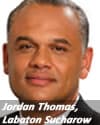An investigation into alleged misappropriation of customer funds at US-based futures commission merchant Peregrine Financial Group (PFG) serves to highlight the need for stronger regulatory oversight and greater whistleblower protection, according to Jordan Thomas, partner and chair of the whistleblower representation practice at law firm Labaton Sucharow.
US regulator the Commodity Futures Trading Commission (CFTC) filed a complaint earlier this month against Peregrine and owner Russell Wasendorf senior in which it alleged that Wasendorf committed fraud by misappropriating customer funds, violating customer fund segregation laws and making false statements in financial documents filed with the Commission. The CFTC alleges that during a National Futures Association (NFA) audit in July, PFG falsely claimed that it held in excess of US$220 million of customer funds, when in fact it held an estimated US$5.1 million. Wasendorf attempted to commit suicide on 9 July 2012.
“Things don’t happen in a vacuum,” Thomas told theTRADEnews.com. “It is particularly troubling that both here, and in the case of MF Global, ethical people who must have known about these abuses remained silent. When misconduct is common and accepted by financial service professionals the integrity of our entire financial system is at risk.”
Troubled ethics
The PFG case follows a survey by Labaton Sucharow which found that 24% of respondents across the US and UK financial services firms believed they may need to engage in unethical or illegal conduct to achieve success in their company.
Moreover, according to the June survey, 26% said they had seen or had first-hand knowledge of such wrongdoing in the workplace, while 16% of respondents said they would commit a crime such as insider trading if they could get away with it.
An even higher proportion of those questioned (39%) thought their competitors were likely to have engaged in illegal or unethical behaviour to be successful. Some 30% believed their compensation or bonus plan created pressure to compromise ethical standards or break the law. Only 30% had confidence that regulators effectively deter, investigate and prosecute misconduct.
“Regulators are only as good as the information they have available to them,” said Thomas. “They conduct spot checks and they monitor for abuse, but consider how few staff they have and then compare that with the thousands of financial organisations and individuals they are expected to cover – it is a huge task. That’s why whistleblowers are essential if we are to ensure the integrity of financial markets.”
Formerly an assistant director in the division of enforcement and assistant chief litigation counsel at the SEC, Thomas was one of the chief architects of the SEC Whistleblower Program, which offers eligible whistleblowers employment protections, monetary awards and the ability to report anonymously in an effort to encourage reporting of financial misdeeds. The Whistleblower Program also has extraterritorial reach.
Coming clean
Labaton Sucharow has just launched its SEC Whistleblower Eligibility Calculator, a web-based tool that allows users to find out whether they are eligible for the SEC programme. The intention is to provide a safe, anonymous means for professionals who are aware of abuses to report them. It is hoped that a large proportion of future cases of financial misconduct will have been brought to light by whistleblowers, according to Thomas.
“Virtually everyone is eligible for the whistleblower program at some point, with very few exceptions,” he said. “People who know about abuse such as mixing of client funds can now report it safely and anonymously, online, without fear of retaliation. There is no question that clients will have much greater protection, thanks to this programme.”
Earlier this week, CFTC commissioner Scott O’Malia suggested broker-dealers should be permitted to maintain customer funds in omnibus accounts, to provide more efficient margining and greater protection for customer funds. It has also been reported that the CFTC’s five commissioners are currently voting on changes proposed by the NFA, under which higher levels of reporting would be required from brokers over transfers of customer funds.
“These new requirements will help begin the process of restoring public confidence in the financial integrity of customer segregated funds,” said Dan Rother, NFA president. “Making this information available to the public will give investors a better picture of the financial standing of the futures commission merchant with which they are conducting business.”
Last month, the CFTC confirmed that it will retire an “alternative method” for calculating client assets dating back to 1987 that was misused by former US-based equity and derivatives broker MF Global.
An estimated US$1.6 billion from client accounts held by MF Global went missing after the firm filed for bankruptcy in October last year; it is alleged that former company CEO Jon Corzine deliberately used client funds to cover the firm’s own prop trading shortfalls.
